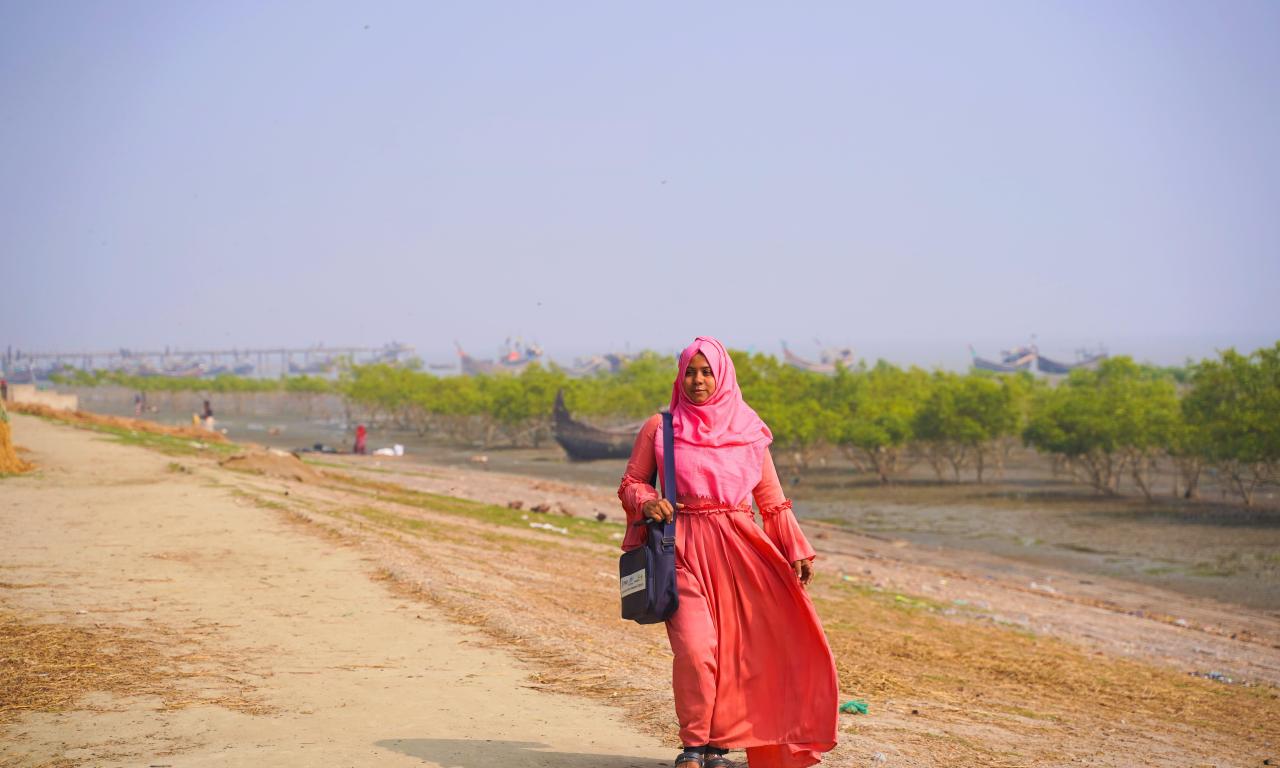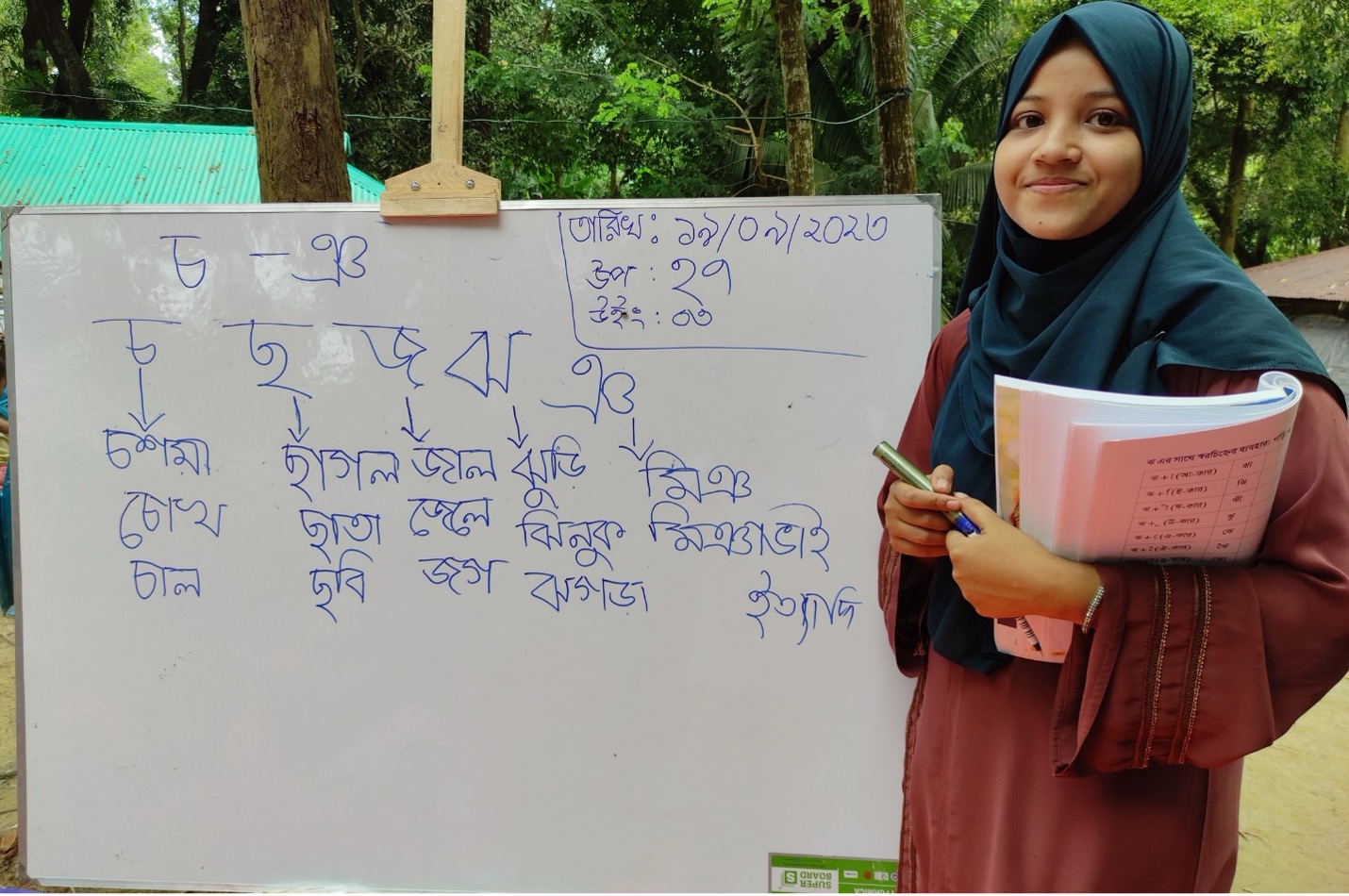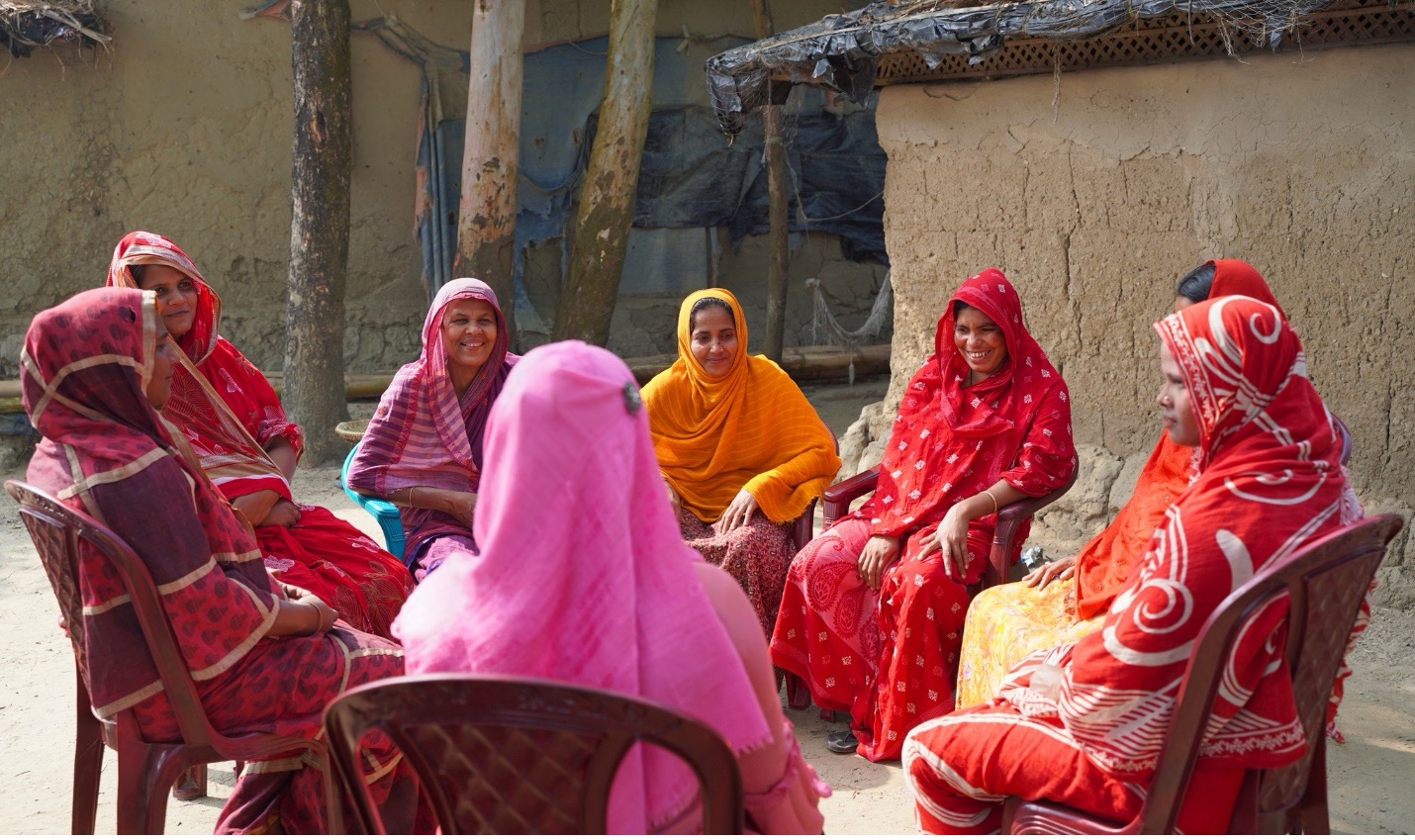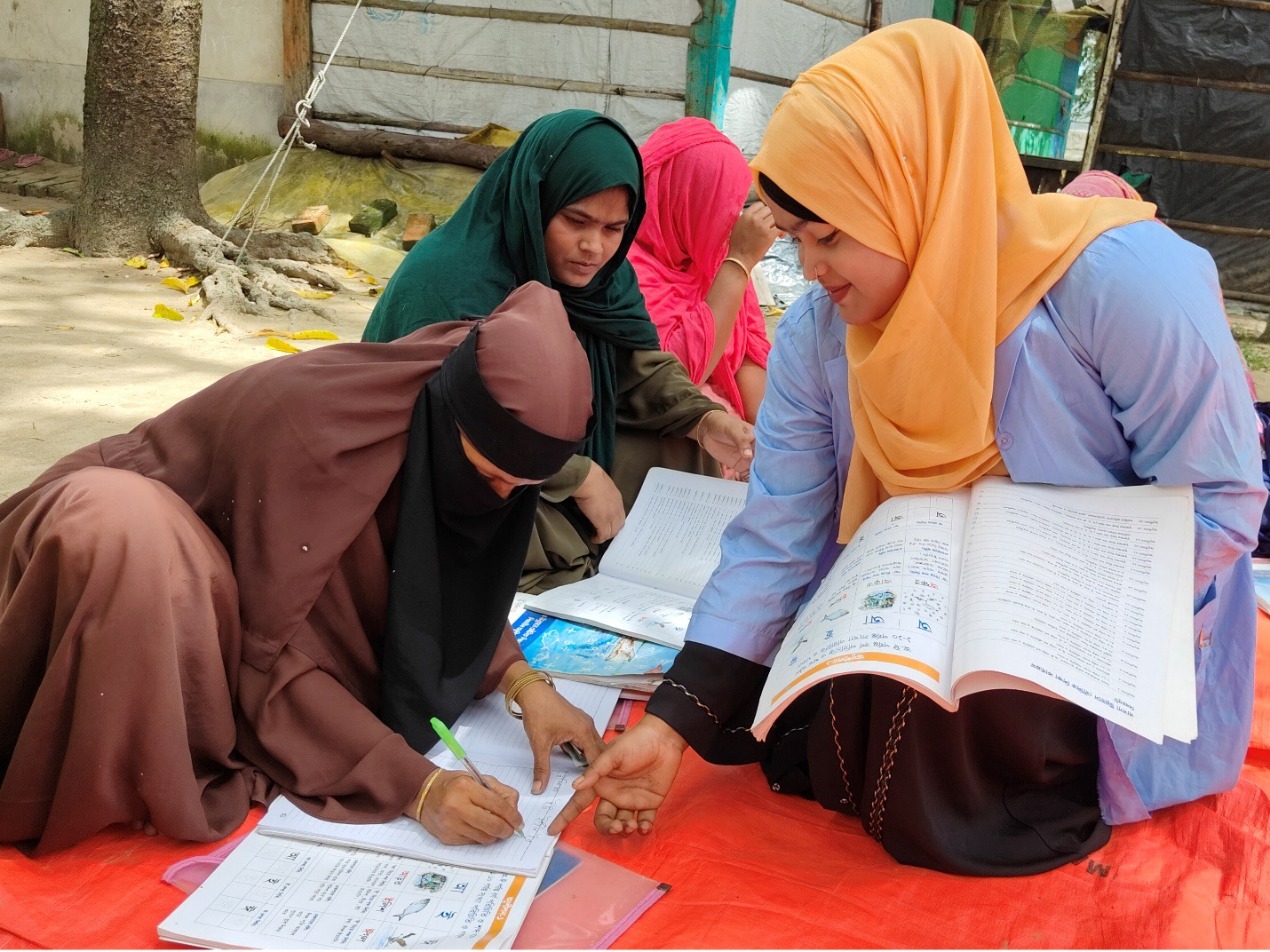
Artisanal fishing communities in Bangladesh face a variety of challenges, such as climate change, overfishing, and socio-economic barriers. Women in those communities play a crucial role, often managing household finances, nurturing children, and supporting fishing activities but they often remain unnoticed and unrecognized and face significant barriers to economic independence.
USAID’s Enhanced Coastal Fisheries in Bangladesh (ECOFISH II) project has played a critical role in empowering women by encouraging sustainable income generation, enhancing nutrition, and conserving biodiversity through community-based initiatives. One of the most effective strategies employed by the project has been the engagement of 48 Community Volunteers (CVs) who work closely with 5007 women from artisanal fishing households in 47 fishing villages to enhance their livelihood opportunities and improve household nutrition. This, in turn, fosters environmental stewardship and sustainable fishing practices that benefit both local families and marine ecosystems.

After marrying, I moved to my in-laws' home in a fishing village in Cox's Bazar Sadar and became a community volunteer. I support 120 women from artisanal fishing families in income-generating activities, growing nutrient-rich vegetables, and providing basic literacy, business skills, and nutrition knowledge. Despite challenges like uncertain marine catches and fishing bans, their livelihoods are improving. – Jannatul.
Bridging the Gap
Women Community Volunteers are recruited from fishing villages for their reliability and deep ties within their communities. These young women play a crucial role by engaging women in income-generating activities, organizing business literacy schools and meetings, promoting savings, and conducting awareness sessions on gender, nutrition, and biodiversity conservation. They receive specialized training in sustainable livelihood practices, nutrition-sensitive interventions, and facilitation skills to operationalize 169 Women Income and Nutrition Groups (WINGs). They manage 169 Business Literacy Schools, supporting 5,007 WING members through 24 sessions focused on business literacy, nutrition, gender equality, and biodiversity conservation. Community Volunteers play a crucial role in the ECOFISH II initiative by facilitating conditional cash transfers, enabling women to start their small homestead businesses and connect with local service markets.
Through a gender-sensitive approach, these volunteers directly engage with women, bridging the gap between technical knowledge and its practical application. They assist women in developing skills for homestead farming, small-scale business, poultry, and goat rearing—all of which provide much-needed supplemental income and improve household food security. Moreover, these practices support reducing the dependency on fishing during seasonal bans and adverse climatic events.
At the Intersection of Income, Nutrition and Biodiversity
Through partnerships with local NGOs, Community Volunteers guide women in developing small-scale businesses, such as homestead gardens, goat and poultry rearing, and safe dry fish production. These activities not only provide women with a steady source of income but also contribute to better nutrition by increasing access to fresh vegetables, eggs, and meat. Additionally, women learn about the nutritional benefits of integrating diverse food sources into their diets, such as lean proteins from poultry and fish. This dual focus on income generation and nutrition-sensitive farming is critical in regions where malnutrition is a persistent challenge, particularly for children and pregnant women.
The activities promoted by the Community Volunteers are designed not just to improve income and nutrition but also to align with broader goals of marine and coastal biodiversity conservation. By engaging women in income generating activities ECOFISH II encourages a shift away from unsustainable fishing practices that deplete marine resources. These income-generating activities give women an alternative means of livelihood, which indirectly contributes to marine conservation by reducing the community's dependency on illegal fishing.
Empowering Women and Changing Household Dynamics
I support in empowering local women with basic education, guidance in alternative income generating activities, homestead gardening, and raising awareness about biodiversity conservation, savings, gender equality, and nutrition. Once an ordinary member of my community, I am now recognized, respected, and appreciated for my hard work. From being a completely unknown individual, I have become everyone’s beloved. " - Sharmin.

One of the most powerful elements of this volunteer-driven model is its focus on empowering women within fishing households and communities. Traditionally marginalized and excluded from decision-making processes, women in these communities are now stepping into leadership roles. Traditionally, men in these communities were the primary breadwinners, while women managed household chores. However, as women gain skills, income, and confidence, they are increasingly viewed as contributors to their families' financial well-being and gradually being a part of decision making. Through these efforts, women are not only improving their families' food security but are also becoming active contributors to household income. This transformation is vital for the communities, where the fishing bans and unpredicted climatic events can severely impact earnings. The skills and support provided by community volunteers enable women to maintain financial stability during difficult times, while also encouraging healthier diets within their households.
This shift is changing the dynamics within the household. As men are provided with gender sensitization sessions, now they are beginning to support their wives in business activities, and family members recognize the value of women’s contributions to household income which gives a new direction of empowerment in marginalized communities in Bangladesh. The volunteers play a pivotal role in catalyzing this change by fostering an environment of collaboration and mutual respect.

A Powerful Tool
The collaboration of Community Volunteers and women in artisanal fishing households has proven to be a powerful tool for driving both economic empowerment and environmental sustainability. In Bangladesh’s coastal villages, the work of Community volunteers is a testament to the power of local engagement and collective action in safeguarding the marine ecosystems. Their work, backed by ECOFISH II, demonstrates that sustainable development is possible when local people are at the heart of the solution. The success of this model serves as an inspiration for other coastal communities and development initiatives, highlighting the power of local engagement in creating sustainable, resilient futures.
